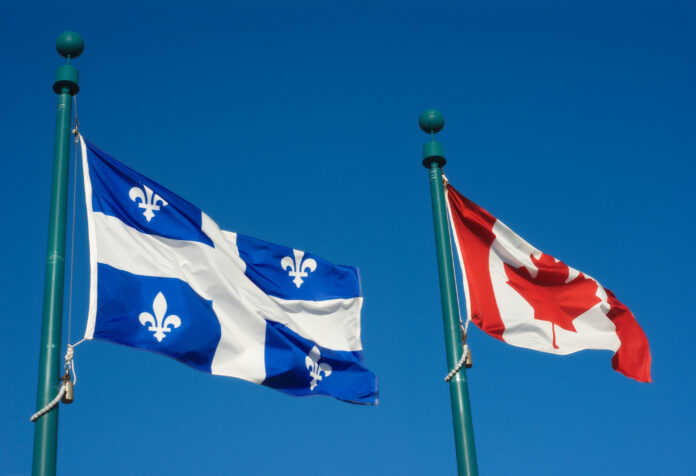
Canada immigration news: Ottawa will work with Quebec to attract more French-speaking immigrants as the province readies itself for a massive surge in immigration this year to make up for the shortfalls in new arrivals during the COVID-19 pandemic, vows Prime Minister Justin Trudeau.
“We are always in the process of working with Quebec to improve (and) accelerate the arrival of immigrants who speak French in Canada and in Quebec,” said Trudeau recently.
Read More Canada Immigration News
Quebec International Students At Universities In Outlying Regions To See Tuition Fees Slashed
Expanded Inspections In Quebec Designed To Protect TFW Rights
Quebec Set To Welcome Over 71,000 New Permanent Residents In 2022
The prime minister reportedly described Ottawa’s on-going work with the province as proceeding “very well”.
Quebec Eyeing 71,275 New Permanent Residents In 2022
Trudeau’s support for immigration to the francophone province comes as it is readying itself to receive 71,275 new permanent residents this year, far more than the 50,285 who settled in the province last year. That 41.7 per cent hike in immigration to Quebec – if it materializes – is intended to be a one-time thing to offset the drop in immigration to the province in 2020.
As Canada saw immigration slow to a trickle due to border closures and pandemic public health restrictions that year, only 25,225 new permanent residents came to Quebec of the 44,000 the province allotted itself under its multi-year immigration plan.
That plan now allows for 52,500 new permanent residents to Quebec this year but the shortfall of 18,775 new permanent residents two years ago is being added to the level of immigration for this year, bringing the total for 2022 to 71,275.
Watch Video
Quebec Immigration Minister Jean Boulet is also expecting to see a surge in temporary foreign workers to the province this year.
“With the simplified applications and the addition of several occupations, trades that will benefit from fast-track processing for temporary immigration, there will certainly be more (temporary foreign workers in Quebec) to meet the demands of Quebec businesses,” said Boulet.
The fly in the ointment for that plan to boost immigration to Quebec, though, is the backlog of applications yet to be processed by Immigration, Refugees and Citizenship Canada (IRCC).
IRCC Backlog Of Applications Stood At More Than 2.1 Million At End Of April
At the end of April, IRCC officials admitted the department is facing a backlog of more than 2.1 million temporary and permanent residence and citizenship applications to Canada.
Quebec Premier François Legault’s office has reportedly blasted the IRCC’s long processing delays and called on Ottawa to give the province the authority to process family sponsorship applications itself to speed things up.
“(The federal government is) incapable of processing, within a reasonable delay, the files of people already selected by Quebec!” Legault’s office reportedly stated. “We reiterate our request: Give management in the category of family reunification back to Quebec.”
In Quebec, an internal poll conducted for Legault’s ruling Coalition Avenir Québec political party reveals 42 per cent of respondents see non-francophone immigration to the province as the biggest threat to its French heritage.
Roughly two-thirds of Quebeckers polled also stated the annual limit of 50,000 immigrants to the province should either be maintained or lowered and French fluency must be a requirement to get a section certificate to immigrate to Quebec.
Business groups facing severe labour shortages, though, want immigration levels increased to allow more workers to come to the province.
Véronique Proulx, president of the Manufacturiers et Exportateurs du Québec (MEQ) manufacturing and exporting industry association, has reportedly called for the province to receive as many as 90,000 immigrants annually.
Business Groups Want Quebec To Boost Immigration To 80,000 New Permanent Residents Per Year
“We know the labour shortages cannot be fixed in the blink of an eye and it will take a series of strategies working in tandem to reduce the impact of the lack of workers,” Proulx said in a statement in French.
Her association and three other business groups, the Conseil du Patronat du Québec (CPQ) employers’ group, the Fédération des Chambres de Commerce du Québec (FCCQ) association of chambers of commerce, and the Fédération Canadienne de l’Entreprise Indépendante (FCEI) association of independent businesses, are lobbying the provincial political parties to take a series of measures to resolve the labour shortages.
The consensus among business groups in Quebec is that immigration should be increased to 80,000 new permanent residents to the province every year.
The prime minister says he understands the need to resolve the labour shortages in Quebec.
“(Ottawa) recognizes as well that we are in a labour shortage and more people are needed,” said Trudeau.

